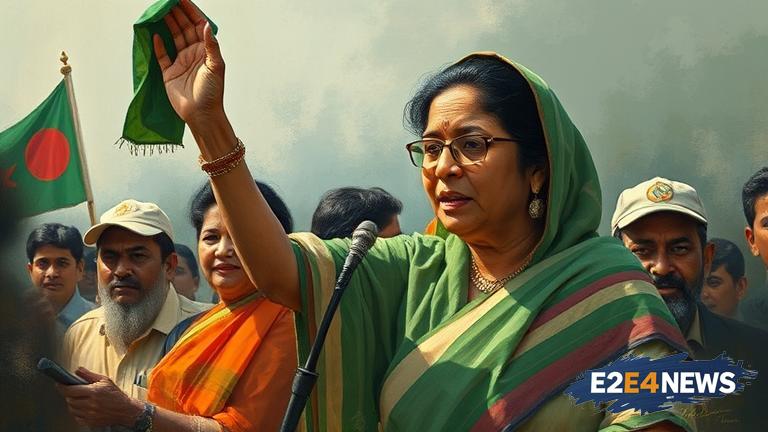Bangladesh is currently experiencing a period of significant turmoil, with the regime of Sheikh Hasina facing intense scrutiny. It has been one year since Sheikh Hasina’s government took office, and the country has witnessed widespread student protests, army intervention, and the emergence of urban guerrilla tactics. The situation has raised concerns about the future of Bangladesh, with many questioning the government’s ability to maintain stability. The student protests, which began as a response to the government’s handling of a bus accident, have evolved into a broader movement demanding reforms and greater accountability. The army’s role in quelling the protests has been controversial, with many accusing the military of using excessive force. The use of urban guerrilla tactics by opposition groups has added a new dimension to the conflict, with many fearing that the situation could escalate into a full-blown crisis. The international community has been watching the situation in Bangladesh with growing concern, with many calling for calm and restraint. The United States, the European Union, and other major powers have urged the government to engage in dialogue with the opposition and to address the underlying issues driving the protests. Despite these calls, the situation on the ground remains tense, with many fearing that the conflict could spread beyond the capital city of Dhaka. The economic implications of the crisis are also beginning to be felt, with many businesses and investors expressing concern about the stability of the country. The government has responded to the crisis by imposing restrictions on social media and the press, which has been criticized by human rights groups. The opposition has accused the government of trying to suppress dissent and stifle free speech. The situation in Bangladesh is complex and multifaceted, with many different factors at play. The country has a long history of political instability, and the current crisis is the latest manifestation of this. The government’s response to the crisis has been criticized by many, who argue that it has been heavy-handed and ineffective. The use of force by the army has been particularly controversial, with many accusing the military of violating human rights. The emergence of urban guerrilla tactics has added a new dimension to the conflict, with many fearing that the situation could escalate into a full-blown insurgency. The international community has a critical role to play in resolving the crisis, and many are calling for greater engagement and support. The United Nations has been urged to play a more active role in mediating the conflict, and many are calling for the deployment of peacekeepers to help stabilize the situation. The situation in Bangladesh is a reminder of the importance of democracy and human rights, and the need for governments to be accountable to their citizens. The country’s future is uncertain, and many are fearing that the crisis could have far-reaching consequences. The government must take steps to address the underlying issues driving the protests, and to engage in dialogue with the opposition. The international community must also play a more active role in supporting the people of Bangladesh, and in helping to resolve the crisis. The situation is complex and challenging, but with the right approach, it is possible to find a peaceful and sustainable solution. The people of Bangladesh deserve a government that is accountable and responsive to their needs, and it is the responsibility of the international community to support them in this endeavor. The crisis in Bangladesh is a wake-up call for the international community, and a reminder of the importance of promoting democracy and human rights around the world.





